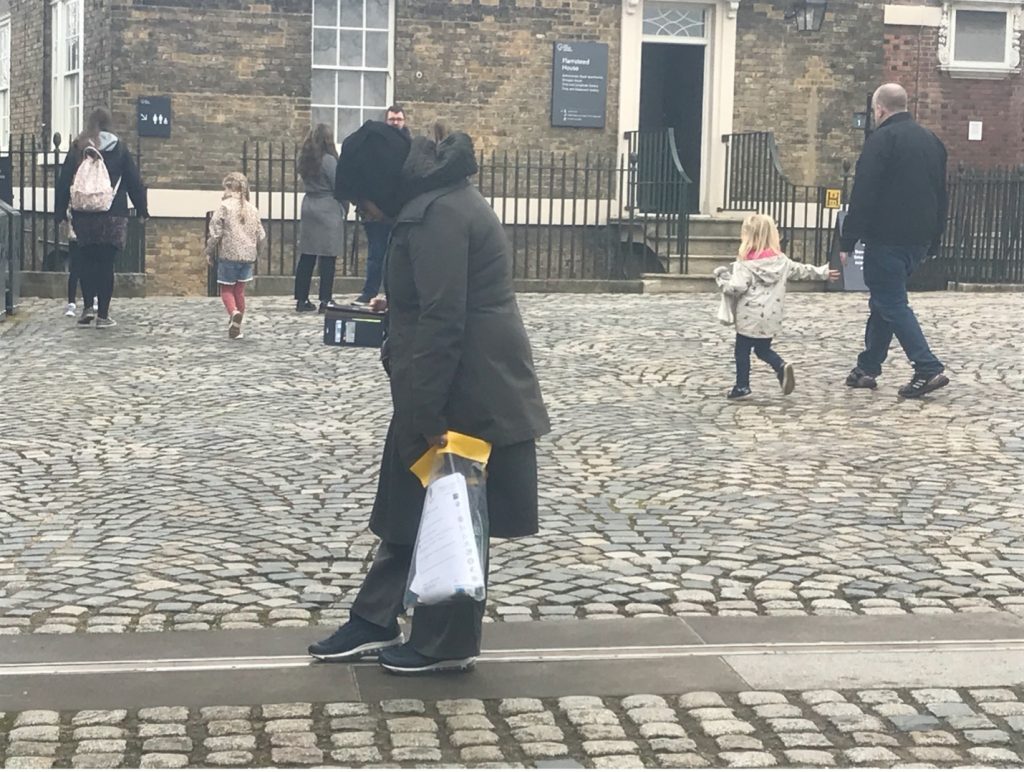A visit to the Prime Meridian in London, and the consequent jet lag, has got me thinking about time zones and circadian cycles - and how when they’re out of sync it screws you up.

A Mean Time
Wife Paula and I are just back from a long-postponed visit to family in England, in the course of which we took a boat trip down the Thames to Greenwich.
This is the location of The Prime Meridian, indicated by a metal strip running through the courtyard of the Greenwich Observatory. It is the longitude that, in 1721 was designated as indicating time zero and the reference point for time measurement for shipping around the world - known as Greenwich Mean Time (GMT) (apparently there was much vexed negotiation about this - but it was a time when the Brit’s had the clout to make these grandiose proclamations)
Living in England, your circadian rhythms are tuned to GMT. On the east coast of the US, we are 5 hours behind (when it’s tea time in Greenwich it’s only 11 am in Fredericksburg).
When you travel, it is the mismatch, between the body’s sleep/wake cycle and the cues of the environment – like light exposure, meal and work times, social engagement and physical activity - that causes jet lag with its disturbed sleep, fatigue, moodiness, GI upset, and the feeling that your brain is lollygagging still half way across the Atlantic (making trying to explain these esoteric concepts a bit challenging).
When Your Cycle’s Broken
The body’s clock that controls sleep/wake cycles, temperature, glucose metabolism, hormone levels, and much else, is located in the suprachiasmatic nucleus in the hypothalamus. It is primarily light exposure that sets the clock by its effect on the pineal gland and melatonin secretion.
But you don’t have to travel the world for your bio-rhythms to be screwed up.
There are a series of illnesses like Irregular Sleep-wake Rhythm Disorder where sleep is random.; Shift Work Sleep Disorder where your body’s rhythms are in conflict with your work cycle; Non-24 hour Sleep-wake Disorder – where your internal clock is not on a 24 hour cycle.
There’s also Advanced Sleep Phase Disorder where you want to sleep early but wake early – which is the pattern in old people.
A change, that particularly intrigues me, is the opposite. Delayed Sleep Phase Disorder, where the person can’t get to sleep till late, then can’t wake up till lunch time if you’re lucky – which seems to be a universal pattern in teens.
This is usually blamed on wantonness and sloth, but there is evidence of spontaneous circadian cycle shift in teens – and some, compassionate schools start classes later to accommodate.
Reset Your Clock
There are things you can do to try to match your rhythms to the world around you. Like leading a regulated life, going to sleep and waking up at a fixed time. And practicing good sleep hygiene. Exposure to bright light is used to artificially control melatonin secretion. Occasionally sleep medicines can help – synthetic melatonin being the most macrobiotic.
For jet lag, the guru of this subject seems to be Dr. Charles F. Ehret, a senior scientist at the Argonne National Laboratory in Illinois who has co-authored Overcoming Jet Lag. He recommends alternating feast days and fast days, starting several days before you travel.
A friend who is a frequent flyer tells me he “heartily recommends” this and explained how on feast days you eat high protein foods for breakfast and lunch and carbs for the evening meal. Then on the feast days, you just eat very little.
By the time you read this, hopefully my biological clock will have adapted to US time. But the several days of jet lag that has addled my brain is testimony to how surfing time zones, or having ones hypothalamus out of sync with the environment, is a doozie.

